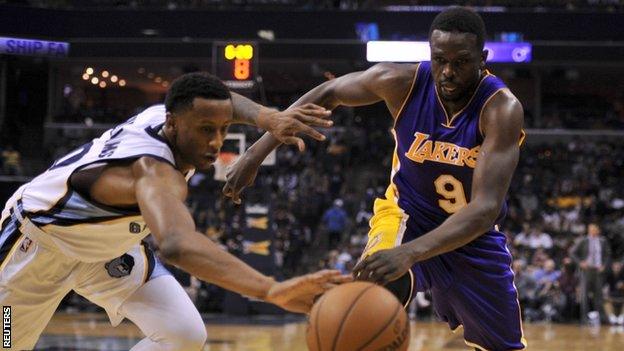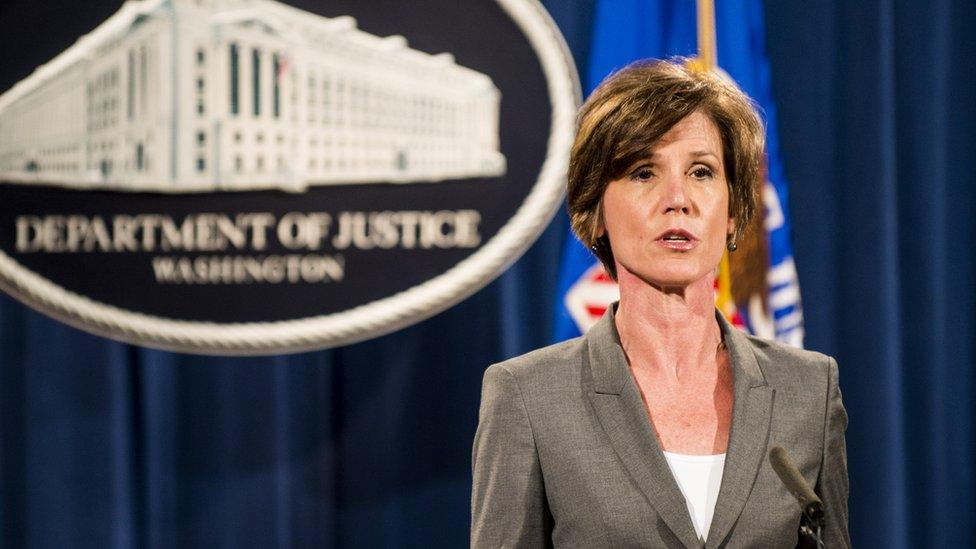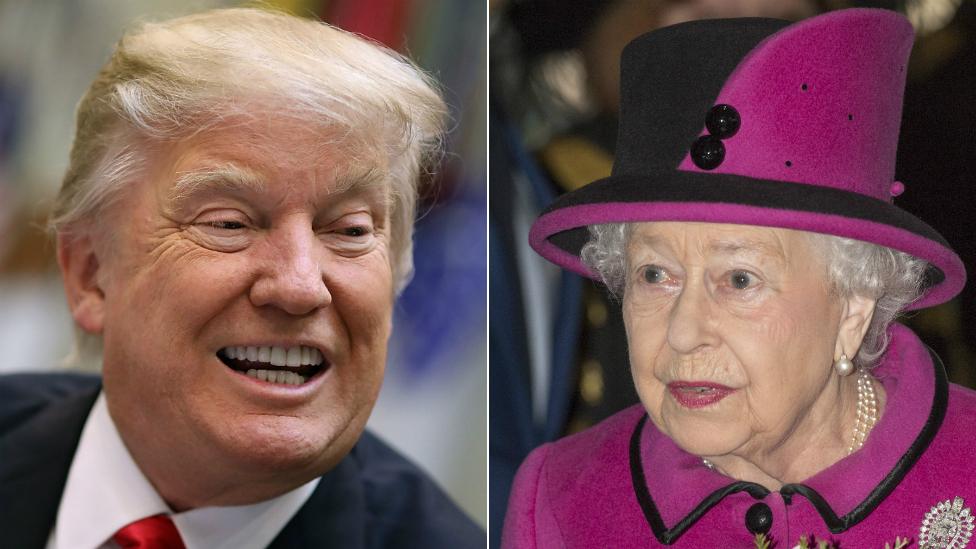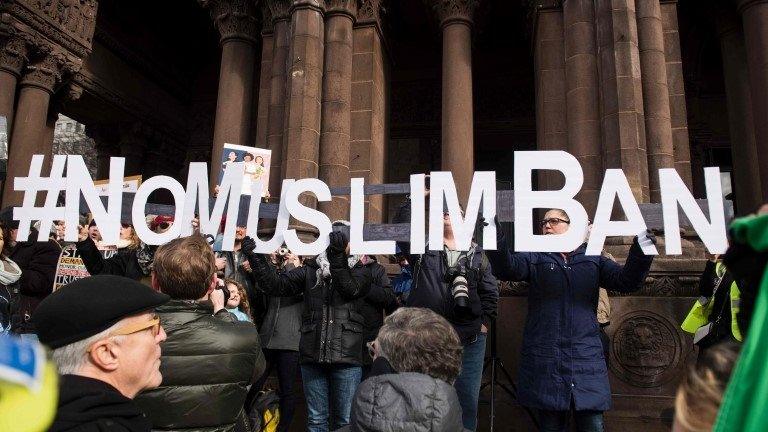Trump ban: US sports figures criticise ban on immigrants
- Published

Luol Deng (right): "I stand by all refugees and migrants, of all religions, just as I stand by the policies that have historically welcomed them."
Leading US sports figures have criticised President Donald Trump's travel ban on nationals from seven mainly Muslim countries.
Trump's order has resulted in protests both in America and worldwide.
Those who have spoken out against the ban include British Los Angeles Lakers star Luol Deng who, as a child, fled to the UK from what is now South Sudan.
He said:, external "Refugees are productive members of society. It's important we humanise the experience of others."
The US president banned entry to the country from Iran, Iraq, Syria, Libya, Somalia, Sudan and Yemen - and temporarily suspended refugee resettlement. The country's Olympic committee said the measures should not impact athletes travelling to the country for international events.
Trump signed the executive order on Friday and early on Sunday he tweeted that the US needed "extreme vetting, NOW". But later, in a statement, he tried to offer more reassuring words, saying: "This is not about religion - this is about terror and keeping our country safe.
"We will again be issuing visas to all countries once we are sure we have reviewed and implemented the most secure policies over the next 90 days," he said.
Trump travel ban: Protesters speak out
There were stronger opinions elsewhere in the NBA on Trump's measures.
Detroit Pistons coach Stan van Gundy said in an interview with The Detroit News:, external "Now we're judging people by their religion - trying to keep Muslims out. We're getting back to the days of putting the Japanese in relocation camps, of Hitler registering the Jews. That's where we're heading."
Toronto Raptors president Masai Ujiri, a native of Nigeria, told reporters in the US: "I think it's just ridiculous. I just don't get it. This is mind-boggling. I'm a prime example of what opportunity is in this world."
NBA championship-winning coaches Steve Kerr, of the Golden State Warriors, and Gregg Popovich, of the San Antonio Spurs, have also spoken out against Trump's order.
Meanwhile, Muslim Atlanta Falcons player Mohamed Sanu said he wanted to focus on preparing for Sunday's Super Bowl against the New England Patriots instead of talk about the ban.
"My name's Mohamed, a lot of people know I'm Muslim, but I'm here because of my football talents, not because I'm Muslim," the 27-year-old said at the Super Bowl opening night.
"I'm here to talk about football so if you guys are going to continue to ask me about my religious beliefs then I'm going to continue to tell you the same thing."
Patriots quarterback Tom Brady was cited by Trump as a supporter during his election campaign and was asked about the issue during a weekly radio appearance.
"I don't want to get into it, but if you know someone, it doesn't mean you agree with everything they say or they do," he said.
Britain's four-time Olympic champion Sir Mo Farah said he was "relieved" he could return to his US home after it was clarified Trump's travel ban did not apply to him.
The ban had appeared to apply to Farah, who was born in Somalia, until an announcement by the UK Foreign Office on Sunday that dual citizens were only affected if travelling to the US from one of the banned countries.
A petition calling for Prime Minister Theresa May to cancel Trump's planned state visit to the UK has so far gathered more than 1.5 million signatures.
- Attribution
- Published31 January 2017

- Attribution
- Published31 January 2017

- Attribution
- Published30 January 2017
